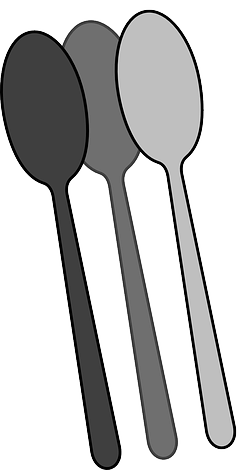 I've just returned from a few days at a conference nestled in the serene landscapes of Derbyshire. Amidst the modern amenities and expansive grounds of the conference centre lies the historic house, a relic from the 1860s crafted by Fitzherbert Wright, the visionary behind St Pancras Station. Once a symbol of opulence, this house now serves as a window into history, adorned with original plans and curious relics, including three battered spoons that whisper tales of a bygone era.
I've just returned from a few days at a conference nestled in the serene landscapes of Derbyshire. Amidst the modern amenities and expansive grounds of the conference centre lies the historic house, a relic from the 1860s crafted by Fitzherbert Wright, the visionary behind St Pancras Station. Once a symbol of opulence, this house now serves as a window into history, adorned with original plans and curious relics, including three battered spoons that whisper tales of a bygone era.
During the tumult of the Second World War, this tranquil retreat was abruptly transformed into Camp 13, hosting German POWs. This was the site of one of the most daring escapes of the war when five German prisoners, including ace fighter pilot Franz von Werra, successfully tunnelled out of the camp using the spoons to dig, as the POW choir distracted the guards. Von Werra managed to convince locals he was a downed Dutch pilot and nearly completed his escape. He was in the cockpit of a plane preparing to fly home when he was discovered and re-arrested. The events were later turned into a film, ‘The One That Got Away’ starring Hardy Kruger.
Along with the spoons there were photographs of some of the prisoners of war both during the war and those that returned after the war to revisit. In almost all cases the prisoners were smiling. Accounts from the returning prisoners document, that although they were the enemy, they were treated humanely with dignity and respect.
These snapshots offer a poignant contrast to the harrowing images we often witness from conflict zones worldwide, where dignity and respect for human life are all too often overshadowed by brutality. Reminded of our shared humanity, I'm drawn to Shakespeare's timeless words from 'The Merchant of Venice': 'If you prick us, do we not bleed? If you tickle us, do we not laugh? If you poison us, do we not die?'. The bible tells me that all humans are fearfully and wonderfully made in the image of God, that there is a common humanity that should not be discounted.
All of this seems disconnected from Lincolnshire and of little relevance and yet, I visited the Vets, the Doctors, the supermarket, even the Foodbank and all display similar signs that state, ‘we will not tolerate physical or verbal abuse towards our staff’. I am all for good customer service, I am even known to complain when things go wrong, but I hope I do this with dignity and respect. In a world where aggression is sometimes mistaken for strength, it's a poignant reminder that true strength lies in our ability to treat one another with dignity and empathy, even amidst disagreement. In the wise words of Peter (the one from the bible), 'Finally, all of you, have unity of mind, sympathy, brotherly love, a tender heart, and a humble mind. Do not repay evil for evil or reviling for reviling, but on the contrary, bless, for to this you were called, that you may obtain a blessing' (1 Peter 3:8-9). So, let's endeavour to navigate our interactions with kindness and understanding, upholding the dignity of others as we nurture a more compassionate world for ourselves and for all humanity.
![]()

